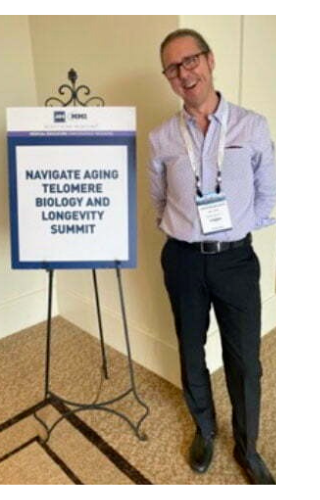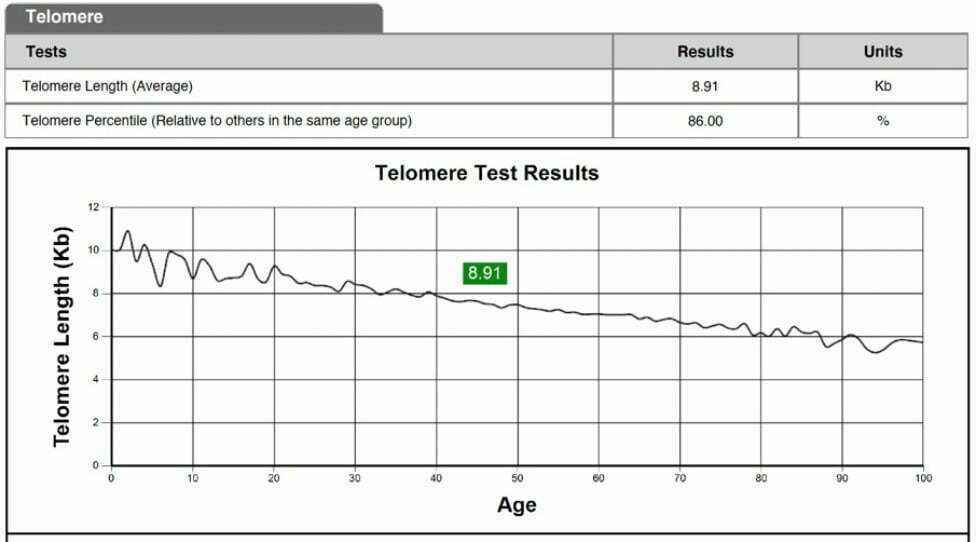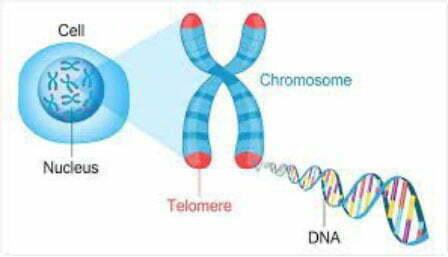Telomeres and Anti-Aging Medicine: Emerging Techniques To Monitor and Improve Health

I just returned from a very exciting conference presented by A4M (The American Academy of Anti-Aging Medicine) detailing the latest information about Telomere Biology! Research in the field of anti-aging medicine has exploded in the last decade and we have reached the point where it can be applied in clinical practice for a wide variety of patients. From diabetes and hypertension to autoimmune disease and cancer, these principles have been shown to be helpful. It is also for individuals who are already ‘healthy’ and want to optimize their performance and longevity. Here are some basic concepts about telomeres and what anti-aging medicine is all about.
What is a Telomere?
A Telomere is a specialized part of DNA that sits on the ends of the Chromosome. You can think of it like the plastic bits on the ends of your shoelaces (called aglets) that keep them from falling apart. While ‘holding the DNA together at the ends’ is part of what Telomeres do, their function in maintaining our health is much more than just that. Telomeres are known to be involved in the following activities in our metabolism[i], [ii]:
- Regulating cell cycles (replication and death)
- Maintaining the structure of our DNA
- Modulating response to inflammatory stress (exposure to toxins, infections, injuries)
- Assisting the functions of mitochondria (energy production, detoxification)
- Regulation of the immune system (fighting infections, repairing damaged tissue)
What matters most about Telomeres as far as your health is concerned is how long they are. We are born with long telomeres, but the enzyme that makes them grow (called telomerase) mostly stops working right after birth. Since the enzyme that ‘grows’ our Telomeres stops working, our Telomeres slowly shrink throughout our lifetime. This shrinking of the Telomeres can occur at different rates for different individuals. As a matter of fact, the shorter your Telomeres get, the more likely you are to develop a variety of chronic illnesses. Shorter Telomeres are also associated with premature aging and death[i].
Chronological Age Vs. Biological Age
The next concept to understand in anti-aging medicine is how to test your body’s performance, relative to the rest of the population. Using markers like Telomere length, we can give an estimate of how your overall health is doing. Enough research has been done now that we know about how long someone’s Telomere’s should be based on their Chronological Age (the time from when you were born until now). We can do a test which measures the length of your Telomeres and compare that to other people your Chronological Age. We may find that your Telomeres are about the same as everyone else your age: therefore your Chronological Age is equal to your Biological Age. On the other hand, your Telomeres may be longer or shorter than the average for your age. This could make your Biological Age even greater than what your Chronological Age. For example, if we measure a 48 year-old’s Telomeres and find that they are the same length as the average 55 year old, that person’s Biological Age is 7 years more advanced than it should be! What we would love to see is if we measure that 48 year-old’s Telomere’s and we find them to be the same length as the average 40 year old: that person’s Biological Age would be 8 years LESS than their Chronological Age.
While there is not a perfect goal for this marker, most experts agree that we’d like to see Biological Age to be less than Chronological Age, preferably by at least 7 years. In other words, you want your Telomeres to longer than average for your age: the same as someone 7 or more years younger than you.
Studies have shown that individuals whose Biological Age is greater than their Chronological Age (shorter Telomeres) are at risk for all sorts of chronic diseases, poor outcomes from infections and are more likely to die sooner. On the other hand, those with Biological Age less than their Chronological Age (longer Telomeres) tend to have less chronic illnesses, better outcomes with infections and live longer.

meaning his Telomeres are about the same as someone in their 20’s! The Black Line represents the ‘Average Telomere Length’ as it naturally
declines over time.
While Telomere length is an important component of Biological Age, it is not the only one. We may use other measurements such as DNA Methylation Status, Biological/Genetic Clock estimates and a host of other metabolic markers in the assessment. Which tests are ordered depends on the individual patient’s health concerns, family history, prior and ongoing medical problems.
Telomere Length: What can we do about it?
Now that we are aware of our telomeres and can measure them, is there anything we can do to help? The answer is a resounding YES! The first thing to do is to address anything in your lifestyle that causing shortening of Telomeres. This includes[i], [ii], [iii]:
- Smoking
- Excessive stress
- Chronic infections
- Diabetes
- High blood pressure
- Poor sleep
- Lack of exercise (and avoiding over exercise!)
- Toxic exposures (heavy metals, mycotoxins, other environmental contaminants)
- Excess alcohol consumption
- Unhealthy diet
Addressing all these underlying factors is essential. As you can see, this is a list of things which everyone already knows are ‘good for your health’… they are also ‘good for your Telomeres’! There is a lot of research which has demonstrated improvement in these factors has a positive impact on Telomere length. The next thing to do is to add in things which are shown to lengthen or slow the rate of Telomere loss. These include[iv], [v]:
- Meditation
- Breathing exercises and Yoga
- Adequate exercise (moderate level, appropriate for age/fitness, combination of resistance training and endurance seems to be best)
- Adequate sleep
- Intermittent Fasting (if tolerated well by the individual, and done the right way)
- Supplement and/or Medication regimens (tailored to your individual needs)
- Peptide therapies (tailored to your individual needs)
Anti-Aging Medicine: How To Get Started
Anti-Aging medicine and assessment of Biological Age is custom tailored for each patient. While checking Telomere length is a part of the laboratory work-up, it is far from the only thing we need to measure to design an effective regimen. If you are interested in learning more about your Telomeres and how to improve your Biological Age, call our office to book a Functional Medicine consult and start your journey to ‘turn back the clock’!
REFERENCES




0 comments
Leave a comment
Please log in or register to post a comment